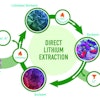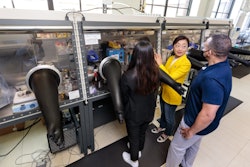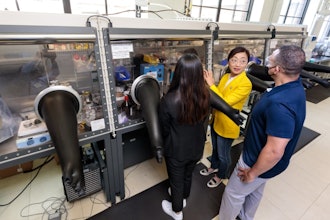DuPont and BP have announced the creation of a partnership to develop, produce and market a next generation of biofuels to help meet increasing global demand for renewable transportation fuels.
DuPont and BP have been working together since 2003 to develop advanced biofuels with properties that can help overcome the limitations of existing biofuels. That work has now progressed to the point where they are able to bring the first product to market. The companies' joint strategy is to deliver advanced biofuels that will provide improved options for expanding energy supplies and accelerate the move to renewable transportation fuels, which lower overall greenhouse gas emissions.Current projections show that biofuels, which today account for less than 2% of global transportation fuels,become a significant part of the transport fuel mix in the future -- possibly up to 30% in key markets.The first product to market will be biobutanol, which is targeted for introduction in 2007 in the UK as a gasoline bio-component. DuPont and BP are working with British Sugar, a subsidiary of Associated British Foods plc, to convert the country's first ethanol fermentation facility to produce biobutanol. Additional global capacity will be introduced as market conditions dictate. A feasibility study in conjunction with British Sugar is already under way to examine the possibility of constructing larger facilities in the UK."DuPont firmly believes that biology will help us reduce our global reliance on fossil fuels," said DuPont Chairman and Chief Executive Officer Charles O. Holliday, Jr. "BP has a history of seeking, and delivering, ways to reduce greenhouse gas emissions both from our own operations and from the products we sell," said Lord Browne, chief executive officer of BP. "Transportation is an important area to address since it accounts for around 20% of global emissions and in the short to medium term increased blending of bio-components represents one of the few real options for progress in this
area on a global scale."Both companies recognize that while existing bio-components have proven to be an excellent starting point for the introduction of biofuels and will continue to play a major role in the future, there are issues that need to
be addressed to increase market penetration. In particular, compatibility with existing fuel supply and distribution systems, the ability to blend in higher concentrations without requiring vehicle modifications, and fuel economy were identified as areas where improvements are needed.This next generation of biofuels will help deliver on these targets. Biobutanol has low vapor pressure and tolerance to water contamination in gasoline blends, facilitating its use in existing gasoline supply and
distribution channels. It has the potential to be blended into gasoline at higher concentrations than existing biofuels without the need to retrofit vehicles and it offers better fuel economy than gasoline-ethanol blends,
improving a car's fuel efficiency and mileage.Initial production of biobutanol will be based on an existing technology, enabling early commercial market introduction. In a second phase, development work on a new biotechnology process using a higher
conversion technology is already under way. Production is intended to utilize a range of feedstocks such as sugar cane or sugar beet, corn, wheat, or cassava and, in the future, cellulosic feedstocks from fast
growing "energy crops" such as grasses, or "agricultural byproducts" such as straw and corn stalks. Since production of biobutanol is similar to ethanol and uses similar feedstocks, existing ethanol capacity can be
retrofitted to produce biobutanol.






















